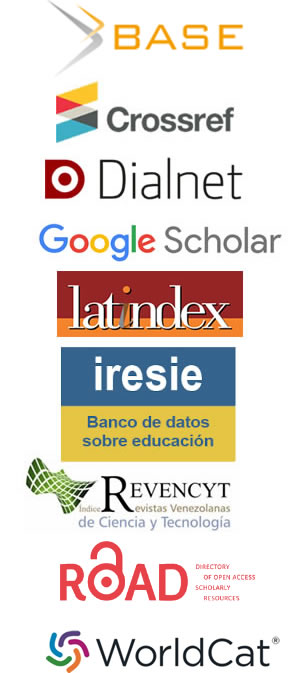New Call for Papers for the next issue of ESS Journal (Vol. 37, Nº1/2025)
The Journal Higher Education and Society (ESS) of the UNESCO International Institute for Higher Education in Latin America and the Caribbean (UNESCO IESALC) calls for articles for its thematic dossier: “Gender and Intersectionality at the University: Inequalities, Policies and Transformations”.
This dossier seeks to deepen the understanding of the complex and diverse experiences of gender in higher education, adopting an intersectional perspective (Ruíz, 2021; Crimmins et al., 2023). We recognize that gender identities are intertwined with other axes of inequality, such as ethnicity, social class, disability, sexual orientation, cultural identity, and migratory status, among others. This intersection of identities and inequalities shapes the trajectories of students, faculty and administrative staff in the different and diverse institutions of higher education, generating unique experiences and specific challenges.
Research on gender and intersectionality is crucial for designing and implementing inclusive and equitable educational policies (Resa and Rabazas, 2020; Ruíz, 2021). By considering multiple dimensions of inequality, we can more effectively address the specific needs of the university community, promoting a fair and inclusive learning and working environment.
Therefore, the purpose of this dossier is to encourage discussion and analysis of the challenges and opportunities for advancing gender equality from an intersectional perspective in universities in Latin America and the Caribbean.
Thematic lines
1. Gender equality policies in higher education:
This thematic line seeks to analyze the implementation of institutional policies for gender equality in higher education considering the intersections with other axes of inequality, as well as the mainstreaming of the gender perspective.
It invites to explore and evaluate initiatives, commitments and regulatory frameworks that promote equal rights and non-discrimination towards women in the university environment, as well as equity and inclusion as guiding principles (Crimmins, et al.,2023). Greater emphasis will be given to works that present monitoring and impact evaluation of these policies (Resa and Rabazas, 2020; Echarri, 2020; Ruíz, 2021; UNESCO & UNESCO IESALC, 2021; UNESCO IESALC & THE, 2022/a).
2. Perspectives, challenges and challenges of gender equality:
This thematic line focuses on the various challenges faced by universities in the implementation of gender equality initiatives (Resa and Rabazas, 2020; Aquino, 2024; UNESCO IESALC & THE, 2022/b).
It seeks to receive contributions on the incidence of gender violence against women, the impact of gender stereotypes on institutional dynamics, gender gaps and personal and work reconciliation in the university environment.
3. Organizational culture and gender: leadership and transformation:
This thematic line proposes to analyze the role of key actors and leadership in the promotion of gender equality within the institutional culture (Resa and Rabazas, 2020).
Contributions are expected to explore strategies for the transformation of institutional practices, with the aim of creating an inclusive organizational culture that respects gender diversity (Showunmi; 2020; Resa and Rabazas, 2020; UNESCO & UNESCO IESALC, 2021; UNESCO IESALC, 2023; Niebla et al., 2024).
We welcome empirical studies, theoretical essays (in-depth), systematizations of experiences (evidence-based), and state of the art (extensively documented) on the theme of the dossier. The dossier will be organized by Blanca Inguanzo Arias (Universidad de Guadalajara), Josefina Guzmán Acuña (Universidad Autónoma de Tamaulipas) and Daniele Vieira Do Nascimento (Universidad Federal de Pernambuco).
As in previous issues, the journal keeps the general section open to receive articles presenting studies and research on higher education in the region and its university institutions.
The deadline for submission of articles for the thematic dossier of this new issue of ESS is May 11, 2025.
All articles will be received through the platform of the Journal Higher Education and Society (ESS) https://ess.iesalc.unesco.org/index.php/ess3/about/submissions where the rules and formats for submission are available. Likewise, each article will be submitted to external peer review under the double-blind modality.
For more information write to ess-iesalc@unesco.org
References
Aquino Zapata, L. P. (2024). Maternidad, estudio y trabajo. Posibilidades de conciliación en una carrera universitaria. Un caso de estudio en Comayagua, Honduras. Educación Superior y Sociedad (ESS), 36(2), 295-315. https://doi.org/10.54674/ess.v36i2.849
Crimmins, G., Casey, S., y Tsouroufli, M. (2023). Intersectional barriers to women’s advancement in higher education institutions rewarded for their gender equity plans. Gender and Education, 35(6–7), 653–670. https://doi.org/10.1080/09540253.2023.2238737
Echarri, C. J. (2020). Interseccionalidad de las desigualdades de género en México. Un análisis para el seguimiento de los ODS. ONUMUJERES. https://mexico.unwomen.org/es/digiteca/publicaciones/2020-nuevo/julio-2020/nterseccionalidad-de-las-desigualdades-de-genero-en-mexico
Niebla Moreno, S. Y., Carrillo Montoya, T. del N. J., Urrea Zazueta, M. L., Tereso Ramírez, L., y Castro Quiñonez, J. A. (2024). Presencia del liderazgo femenino en las universidades públicas sinaloenses. Educación Superior y Sociedad (ESS), 36(2), 272-294. https://doi.org/10.54674/ess.v36i2.923
Resa Ocio, A., y Rabazas Romero, T. (2020). Organizaciones y políticas supranacionales: una mirada desde la educación superior y la igualdad de género. Revista Española de Educación Comparada, (37), 281–298. https://doi.org/10.5944/reec.37.2021.27793
Ríos, L. (1 de julio de 2022). Qué es la interseccionalidad y por qué te importa saberlo. Banco Interamericano de Desarrollo. https://blogs.iadb.org/igualdad/es/que-es-interseccionalidad/
Ruíz, C. (2021). Mujeres en la educación: desigualdades sociales más allá del género. Análisis, 53(98). https://doi.org/10.15332/21459169.6237
Showunmi V. (2020). The Importance of Intersectionality in Higher Education and Educational Leadership Research. Journal of Higher Education Policy and Leadership Studies. 1(1), 46-63. http://dx.doi.org/10.29252/johepal.1.1.46
United Nations Educational, Scientific and Cultural Organization and UNESCO International Institute for Higher Education in Latin America and the Caribbean. (2021). Women in higher education: has the female advantage put an end to gender inequalities? UNESCO & UNESCO IESALC. https://unesdoc.unesco.org/ark:/48223/pf0000377182
UNESCO International Institute for Higher Education in Latin America and the Caribbean and Times Higher Education. (2022a). Gender equality: how global universities are performing, part 1. https://unesdoc.unesco.org/ark:/48223/pf0000380987
UNESCO International Institute for Higher Education in Latin America and the Caribbean and Times Higher Education. (2022b). Gender equality: how global universities are performing, part 2. https://unesdoc.unesco.org/ark:/48223/pf0000381739
UNESCO International Institute for Higher Education in Latin America and the Caribbean. (2023). The representation of women in academia and higher education management positions: policy brief. UNESCO-IESALC policy brief series. https://unesdoc.unesco.org/ark:/48223/pf0000386876




